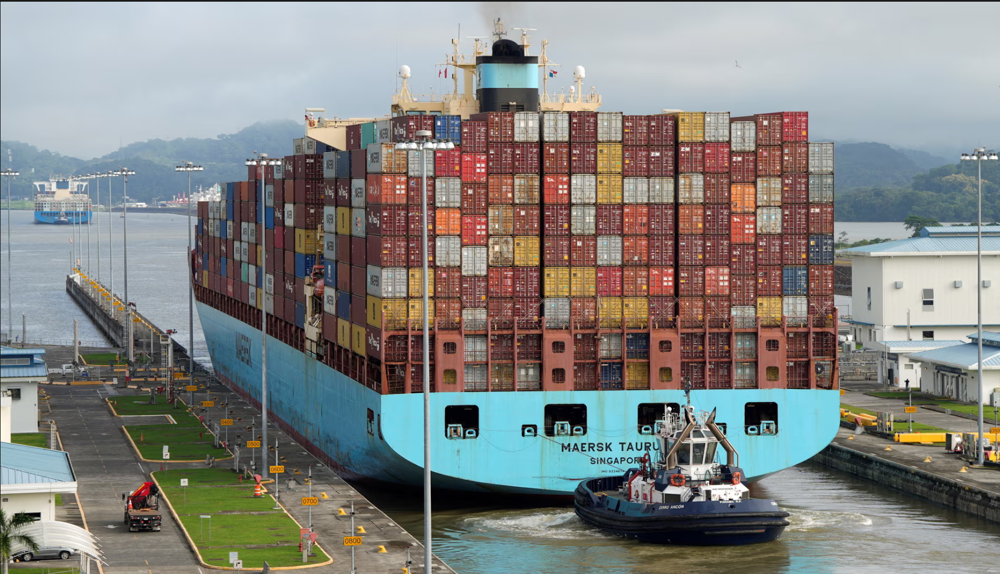Russia, Brazil rush planes to fight raging Chile fires
Firefighting airplanes from Russia and Brazil have arrived in Chile to help combat the country’s raging wildfires which have so far displaced thousands of people and reduced vast stretches of forests to ashes.
Arriving in the Chilean capital of Santiago on Monday, the planes included an Ilyushin Il-76 for the Russian Air Force and two C-130 Brazilian Hercules with the capacity of containing tons of water for firefighting missions.
The help comes after almost two weeks of firefighting, during which 11 lives have been lost and some 480,000 hectares of forests destroyed across the South American country. Fires have also forced the evacuation of at least 4,000 people.

Chile’s Foreign Minister Heraldo Munoz welcomed the arrival of the Russian firefighting aircraft and the crew at the capital’s airport and said they would remain as long as it is necessary to combat the fires.
"I have expressed the appreciation of the government and the people of Chile towards the Russian government and Russian air force for having traveled more than 32 hours to come to our country," Munoz said.
Russia's Ilyushin II-76 has a capacity to hold 40 tonnes of water and can launch it from a height of 50 to 100 meters, covering an area of 1.25 square kilometers in one go. Brazilian Hercules holds 12,000 liters of water and functions from a height of 46 meters.

The huge fires have raged mainly in thinly-populated rural areas in O’Higgins and El Maule regions, located in the country’s south and center, where the inferno destroyed homes, pasture, and livestock.
Chilean firefighters have so far extinguished 60 ground fires and got 59 other fires under control; however, there are some 110 reported fires still raging on amid strong winds and a heat wave.
All affected areas are under a state of emergency, while several cities including the capital Santiago are shrouded in smoke.
"Terrible, it is so terrible, there is so much shock, anguish, seeing that the fire is approaching our houses," said a resident in Portezuelo, a town in the southern Chilean province of Ñuble.
"It has advanced on all sides, very little is left, what do I know? What is going to happen? We pray to God that it rains, I wish it were raining so that none of this would happen," added another resident.
Chilean authorities recently detained 43 people on suspicion of having started some of the deadly fires in the Latin American country. If convicted, the suspects could face a penalty of up to 20 years in prison.
President Michelle Bachelet had earlier said that the Justice Department was investigating to determine "who has been causing the fires in our nation, in those cases where there is malice and those case where there is negligence."
Bachelet said she had authorized the military to patrol rural areas in an effort to prevent any further arson.
More than 11,000 people, including members of the military, police, public officials, and residents have been working to extinguish the fires in what Chile has described as the largest emergency operation in its history.

Chile is vulnerable to forest fires, floods, volcanic eruptions, and earthquakes. Back in 2014, a forest fire killed at least 12 people after it swept through hundreds of homes in the Pacific coastal city of Valparaiso. It destroyed 2,000 homes and left at least 8,000 people without a place to live.
According to fire brigade chiefs, poor preparation for climate change and large monoculture plantations have contributed to the country’s forest fires before.
VIDEO | Thousands evacuated in Ethiopia amid earthquakes, volcanic eruption fears
Revealed: Israeli ministers eye restoration of illegal settlements in Gaza through genocide
How Los Angeles’ pistachio tycoons facilitated and profited from wildfires
Iraqi PM: Iran was in Syria to fight terrorism; presence requested by Damascus
Hamas: Israel's massacre in Jenin camp won’t break resistance
60 bodies recovered from abandoned South African gold mine: Police
Biden administration ‘quietly’ circumnavigating own ban on TikTok: Report
Iran Navy takes delivery of first advanced ‘signals-intelligence’ destroyer














 This makes it easy to access the Press TV website
This makes it easy to access the Press TV website